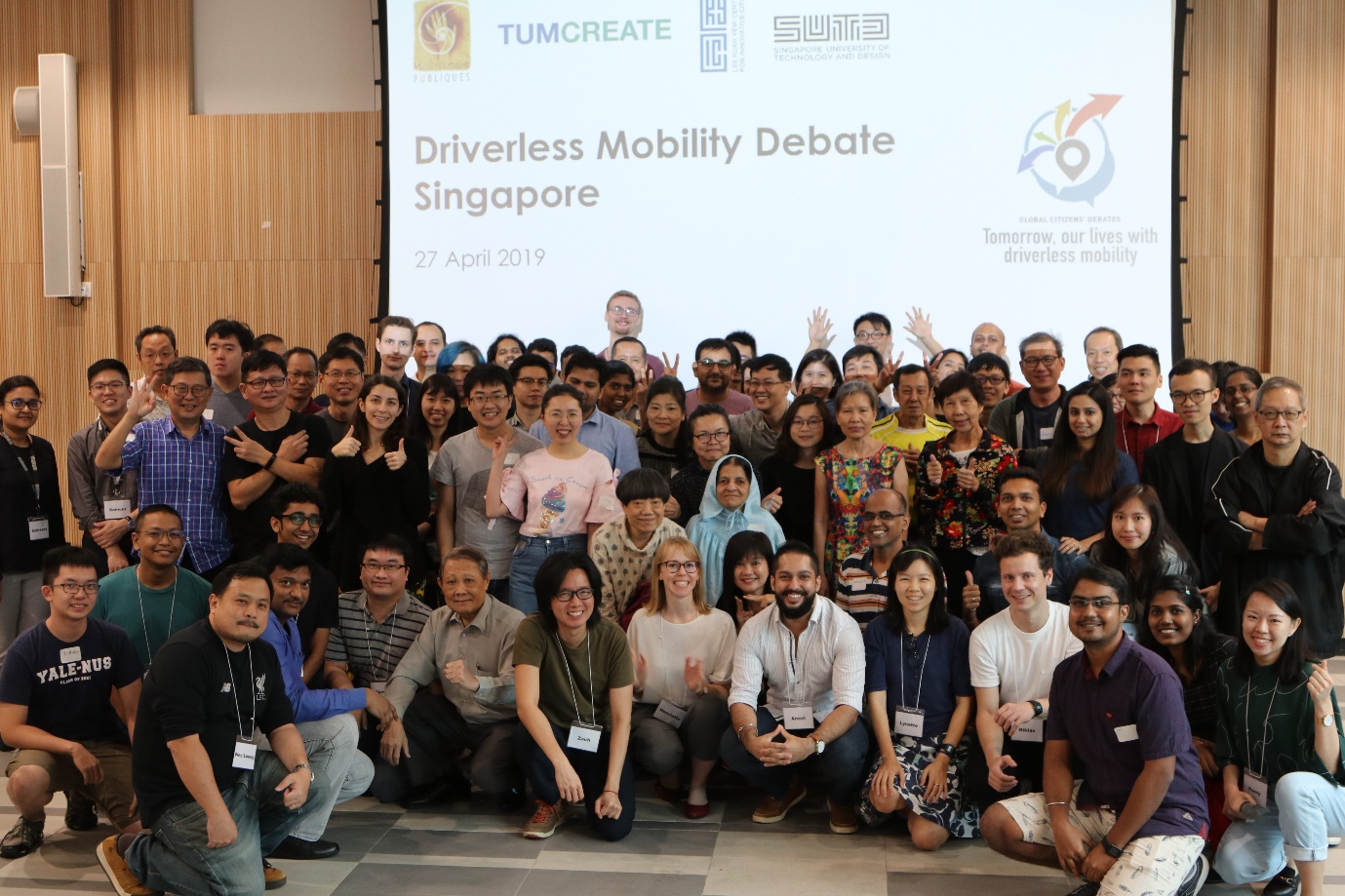Singapore Ranks First as the Most Optimistic City for Driverless Mobility
According to the latest findings from a Driverless Mobility Dialogue, most Singaporeans are ready to embrace the introduction of autonomous vehicles (AVs) on the road.
TUMCREATE and the Singapore University of Technology and Design (SUTD) worked together to conduct a Driverless Mobility Dialogue, with 60 Singaporeans from all walks of life, to better understand Singaporeans’ expectations and perceptions of AVs in Singapore. Data collected from the dialogue were then analysed and compared at a global scale among 17 cities1.
 SUTD hosted the Driverless Mobility Debate (Singapore) in April 2019, which saw over 60 participants from various backgrounds sharing their views across six themes in the day-long discussion.
SUTD hosted the Driverless Mobility Debate (Singapore) in April 2019, which saw over 60 participants from various backgrounds sharing their views across six themes in the day-long discussion.
Based on one of the evaluation categories, Singapore ranked first, tied with Salzburg, as the most optimistic city towards driverless mobility. Most Singaporeans had used positive keywords like ‘exciting’ and ‘forward’ to describe their views on having AVs on the road. Among the 17 cities, Singapore also scored the highest for the level of trust in government across all six issues, namely, Privacy, Infrastructure, Justice/Equity, Cybersecurity, Safety and Environment.
The data collected showed that improvement in convenience and efficiency for transportation were some of the expectations by Singaporeans. A mixed sentiment was presented for the considerations on safety and cost where the two were indicated to be a cause for both hope and concern. On the type of AV deployment scenario, 92% of Singaporeans preferred the deployment of driverless mobility in a public transport model. Globally, an average of 90% of the participants from all cities agreed on the deployment of driverless mobility in a public transport model while only 25% wished for individual ownership of driverless cars.
“It is encouraging that many support the deployment of autonomous vehicles in public transport in cities, as opposed to driverless personal cars. In compact cities like Singapore, shared use of AVs makes sense to enhance mobility opportunities for all,” said SUTD Associate Professor for engineering systems and design, Lynette Cheah, a co-organiser of the event.
“This dialogue was a great opportunity to hear about the hopes and concerns for driverless mobility from people all over the world as they are, ultimately, the users of the technology” said Dr Henriette Cornet, Principal Investigator at TUMCREATE. She added, “With plans to expand testing grounds for AVs in Singapore, it is good to know that Singaporeans are very optimistic about going driverless, but we would need to tread carefully on aspects like safety, infrastructure and privacy protection.”
Dr Cornet and Associate Professor Cheah, supported by Penny Kong from TUMCREATE and Dr Samuel Chng from the Lee Kuan Yew Centre for Innovative Cities at SUTD, are currently working on a scientific publication based on the results analysis. Ms Kong and Dr Chng were also involved in organising the Driverless Mobility Dialogue. Results from the dialogue will be released for public access through TUMCREATE website and social media platforms.
1 The 17 cities include: Vienne, Pörtschach, Linz, Salzburg, Graz, Aachen, Paderborn, Boston, Washington, Buffalo, Phoenix, Lille, Montreal, Manchester, Lisbon, Cascais and Singapore.